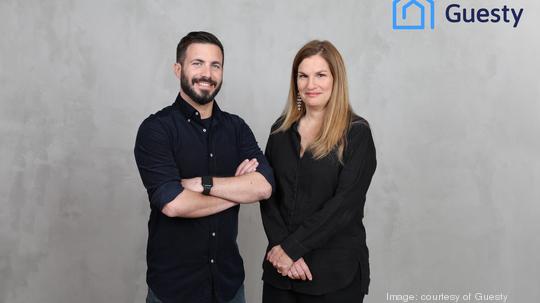
When Ami Soto and his twin brother Koby were looking for a way to support their love of travel, they rented out their own apartments in Tel Aviv. At the peak of Airbnb’s disruption of the urban rental market, the word quickly got out, and the twins started managing friends’ Airbnb apartment rentals so they could travel as well.
The brothers were looking for a way to automate and streamline the management of the properties. They soon realized their talent was in creating software, rather than cleaning and maintenance.
So in 2013 they launched Guesty, which is headquartered in Los Angeles and Tel Aviv. It’s since grown into a full end-to-end platform for property management for the short-term, vacation rental and hospitality industry.
The platform serves the spectrum of independent hosts to enterprise hotel brands. It enables customers to centralize their reservations and facilitates guest communication, operational tasks, cleaning management and more. It’s grown into a global company, with 14 offices around the world, along with a large R&D team.
Since the onset of the pandemic in early 2020, the short-term rental industry has grown exponentially, with travelers spending more than $200 billion on these type of accommodations in 2021.
Investors have taken notice. Guesty just closed on a $170 million Series E funding round, led by the Apax Digital Funds, MSD Partners and Sixth Street Growth. Existing investors Viola Growth and Flashpoint also participated.
This brings Guesty’s total amount raised to date to $280 million.
The Series E capital will be used to scale the company's global operations to meet increasing demand, obtain new properties and expand into new verticals, such as tailored accounting and business reporting solutions.
Guesty is also exploring new resources to support the growing needs of hospitality operators, such as increasing the amount of automation within its platform, along with enhanced AI-based communication tools.
The company's tech can be used to operate any inventory, from traditional hotel-like properties, glamping, urban rentals, monthly stays, living-as-a-service and standalone vacation villas.
Living as a Service is one of the most quickly expanding sectors of the subscription economy. It woks by giving tenants freedom and autonomy in terms of rental times, with no long-term leases —instead charging them a monthly fee for rent and utilities. This service typically includes turn-key homes equipped with furniture, linen, kitchenware and utilities. Cleaning and concierge services are often included as well.
The company is also investing heavily in its fintech offerings, allowing customers to bill more efficiently, create credit lines, and take loans to grow their property management businesses, manage risk and offer more advanced analytics, with the goal of better managing their operations.
“With the lines between traditional hotels and short-term rentals blurring, hospitality operators are now expected to provide an enhanced guest experience, numerous amenities, flexible inventory and real-time communications to meet consumer demands and new travel personas that meld live, work, socialization and travel schedules,” Vered Raviv Schwartz, Guesty's COO and president, told L.A. Inno.
Revenue and Growth
Guesty is on track to reach $100 million in annual recurring revenue by the first half of next year, the company said. And, it’s experiencing 100% growth year-over-year.
Its team has expanded to 585 employees globally, doubling in size since last year’s Series D round, which raised $50 million.



